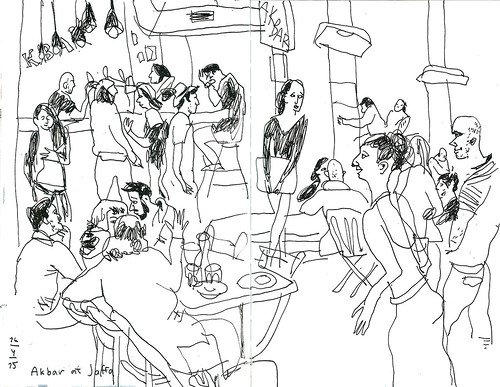School age is widely accepted as an appropriate time to begin a child’s education in art and music. Although art is beneficial at this age research shows that children can benefit from art at a much earlier age then previously thought. Neuroscience has shown that the human brain is a complex structure that begins developing and responding to stimuli while a child is still in the womb. Introducing children to art soon after birth can provide a multitude of benefits that will enhance early childhood development.
The basic architecture of a child’s brain is shaped by their early experiences. For a baby objects and sounds that stimulate the five senses are extremely important to cognitive development. Stimulating the senses can be accomplished by exposing a baby to music and art. Babies begin to grasp the basic concepts of language through speech, reading to a baby helps that process. Since baby books are also full of colorful pictures reading with a baby also creates visual stimulation. Stimulating a child with brightly colored pictures or objects as well as with music increases brain activity. This increase in activity promotes comprehension of other skills later in life. Babies that spend time looking at patterns and shapes are stimulating the area of the brain that will be crucial to later development of math skills. The key is to look at a child’s development as a series of building blocks. These blocks will have a better foundation if a child is surrounded by art and music at an early age.
As a child grows the way in which they experience art grows as well. As early as a year old a child can begin experimenting with painting and clay which will help with the development of motor skills. At the toddler stage children begin to experience complex emotions that often cause frustration and stress. Painting and drawing can serve as a release for that stress and as an avenue to express those emotions. The use of art to express thoughts and feelings will help a child to increase their overall cognitive abilities. Increasing these abilities leads to the development of tangible skills such as attention span, learning skills, retention of information and the ability to understand and apply abstract concepts. Exposure to music is also related to an increase in cognitive abilities. Children that are encouraged to play with simple musical instruments have been shown to have a better understanding of basic spatial skills. Early exposure to music helps form the same connections in neural pathways that are necessary for the acquisition of math skills. Playing musical instruments also has physical benefits such as better motor skills and coordination.
It is clear that early and continued exposure to art and music will help a child develop and in turn succeed later on in the school setting. The importance of exposure to art from the time of birth and onward has been studied at length. Creating awareness for parents about the importance of art in early childhood development will serve to benefit society as a whole. Hopefully this evidence will create support for education programs that will teach parents how to incorporate art into the lives of their children.



